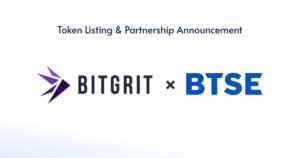Japan’s FSA Imposes Tighter Regulations for Crypto Exchanges
Photo by Hardik Pandya on Unsplash
Japan’s Financial Services Agency (FSA) has pulled the reins in on aspiring and existing cryptocurrency exchanges by implementing a more rigorous screening process for risk-management procedures, according to Japan Times.
The new order is supplementary to the Payment Services Act of April 2017, which requires all cryptocurrency exchanges to prove their solvency with audited record-keeping as well as undergo screening of their security measures.
Judging by the FSA’s earlier report on its findings during on-site exchange inspections, published Aug. 10, previous measures appear to not have been effective in proving robust operation. The document highlighted a myriad of shortcomings among some of the nation’s largest exchange operators including risk management, internal auditing and anti-money-laundering practices.
Now, the FSA has quadrupled the number of screening questions (up to 400) and requires exchanges to submit excerpts of board meetings, according to Japan Times.
Damage Control

Having stood by a number of multi-million-dollar blunders since the 2014 Mt. Gox hack, Japan’s financial watchdog isn’t likely to raise many eyebrows with the move, which is the latest in a string of regulatory crackdowns in the seemingly crypto-crazed nation.
In the aftermath of Tokyo-based Coincheck’s $530 million loss, which at the time was put down as the largest crypto hack in history, the FSA ceased to process all new applications from exchanges. However, it has reportedly resumed operations.
Where some would view the new regulations as arduous, the FSA’s willingness to charge ahead may, in fact, stand as a testament to the Japanese government’s emerging ambitions of becoming a leading blockchain and cryptocurrency hub.
The determination of prospective exchange operators may say as much, and with more than 100 companies remaining interested in an application, it would seem that some bureaucracy is worth enduring.



 Farside Investors
Farside Investors 



















































































